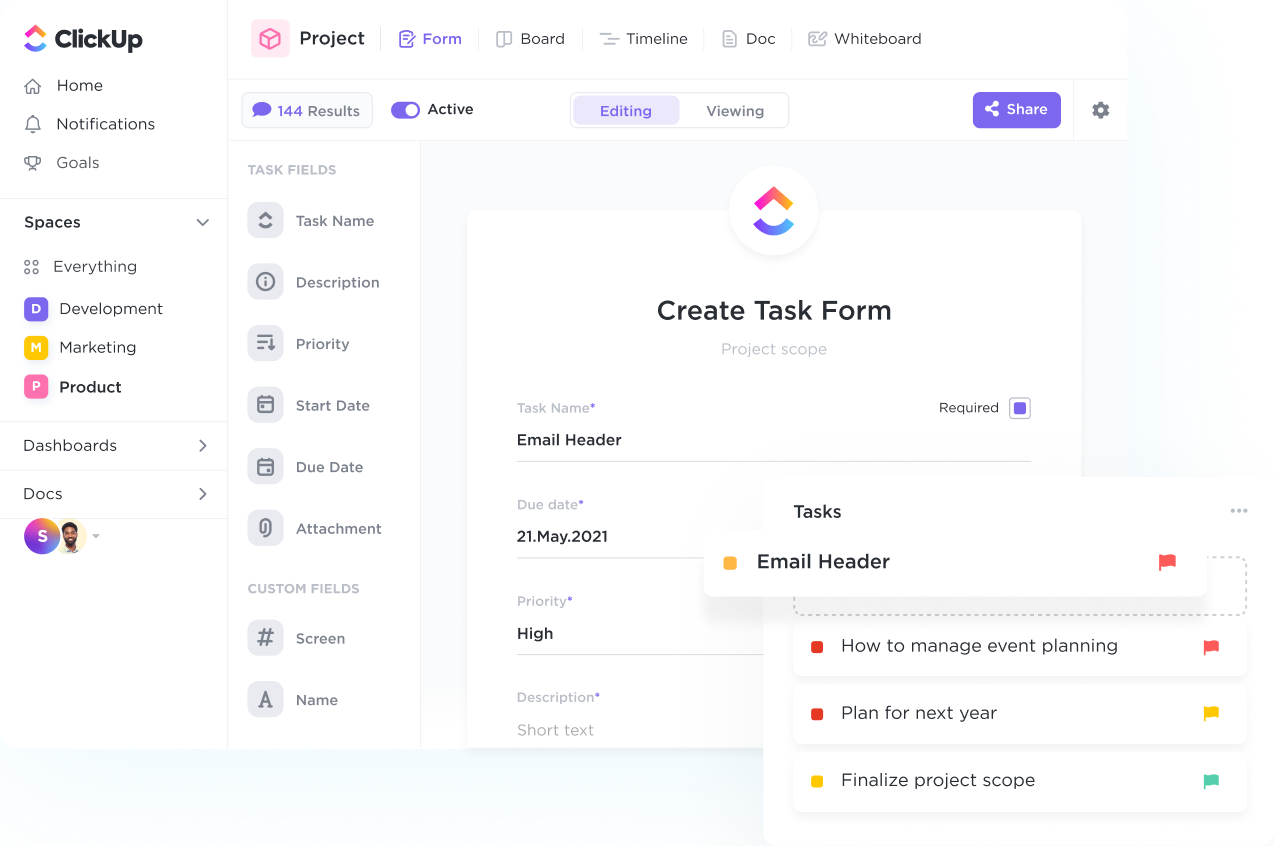Forms
Onboard customers and collect info in a snap.
Streamline your intake process, organize response data, and automatically create tasks with custom branded Forms powered by conditional logic.

Gantt Charts
Optimize your store management workflow with ClickUp's powerful CRM system designed specifically for Store Managers. Streamline communication, track sales data, and enhance customer relationships all in one place. Try ClickUp today to revolutionize how you manage your store!
Free forever. No credit card.
Forms
Streamline your intake process, organize response data, and automatically create tasks with custom branded Forms powered by conditional logic.

Email Management
Eliminate silos and fast-track communication by integrating your emails with ClickUp. Collaborate on deals, send project updates to clients, and onboard customers with a single email hub.

A CRM centralizes all customer data, including purchase history, preferences, contact information, and interactions. This eliminates the need for store managers to search through multiple systems or files to find relevant customer information, leading to more personalized customer interactions.
CRMs can track inventory levels in real-time and provide alerts when stock is running low. This helps store managers in timely restocking, avoiding stockouts, and ensuring that popular products are always available to customers.
By segmenting customers based on their purchase behavior, preferences, and demographics, a CRM enables store managers to create targeted marketing campaigns. This personalized approach can lead to higher customer engagement and increased sales.
CRMs can track individual staff performance metrics such as sales numbers, customer satisfaction ratings, and productivity. This data helps store managers identify areas for improvement, provide targeted training, and incentivize top-performing employees.
A CRM can manage promotions, discounts, and loyalty programs for customers. Store managers can easily track the effectiveness of different promotions, monitor customer participation in loyalty programs, and adjust strategies based on real-time data.
CRM software can help you manage customer relationships more effectively by organizing customer data, tracking interactions, and providing insights for more personalized and targeted marketing strategies, leading to improved customer satisfaction and retention.
Store managers should look for CRM software that offers customer data management, inventory tracking, sales reporting, customer engagement tools like loyalty programs, and integration with point-of-sale systems to streamline operations and enhance customer relationships.
Yes, CRM software can help you track and analyze sales data to identify trends, customer behaviors, and patterns, enabling you to make informed business decisions that drive growth and profitability for your store.